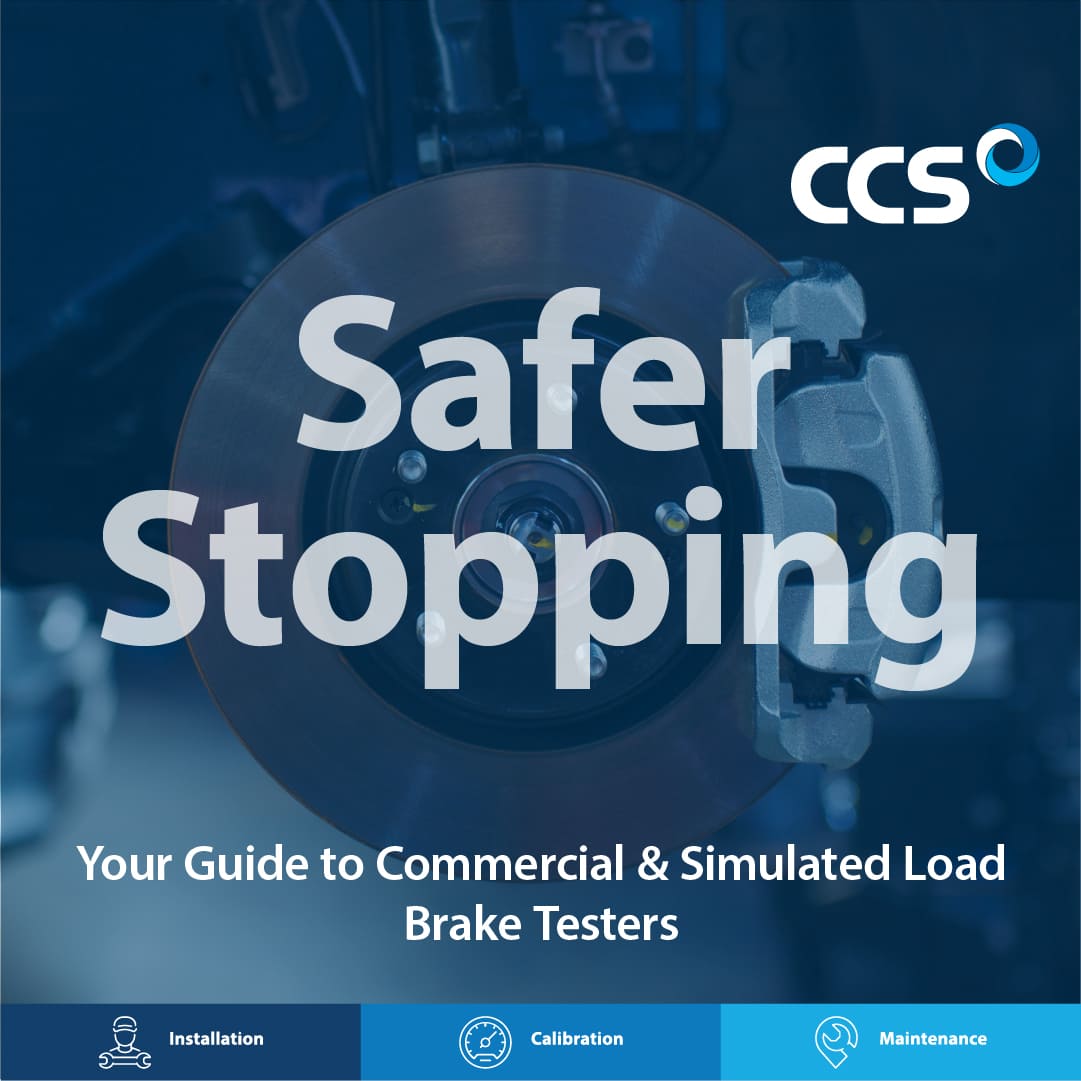
Following an important update by the DVSA earlier this year, investing in the right commercial brake testing equipment for your workshop is critical to keeping heavy commercial vehicles on the road safely.
Since April 2025, heavy commercial vehicle operators have been required to carry out brake tests more frequently, undergoing a minimum of four laden roller brake tests annually as opposed to just one.
Reflecting normal operating conditions when laden with goods, vehicles must be loaded to at least 65% of their design axle weight during testing, either through loading of the vehicle by the operator, hiring ballasted trailers or use by the ATF of a load simulation brake tester.
This mandatory requirement is included in the DVSA’s Guide to Maintaining Roadworthiness, and is an important update for ensuring road safety amongst heavy commercial vehicles, reducing risk to the HGVs and other road users from potential braking issues.
Whether you’re a busy ATF centre, fleet operator, trailer services provider or a commercial vehicle dealership, roller brake testers and simulated load brake testers installed by CCS Garage Equipment help you to keep pace with the DVSA’s requirements, bringing industry-leading technology to your in-house testing and vehicle servicing facility that keeps your vehicles, people and other road users safe.
An integral piece of equipment in a DVSA ATF test lane, computer-controlled roller brake testers are used routinely for professional heavy vehicle brake testing in a wide range of workshops, monitoring and assessing braking performance and forces under simulated road conditions to ensure vehicles’ braking systems are safe and roadworthy.
Commercial roller brake testers installed by CCS Garage Equipment for clients throughout the UK and Ireland are reliable, heavy duty and robust, coping with sustained use in busy workshops. CCS installs in-ground commercial roller brake testers for organisations including:
 Simulated load commercial roller brake tester installed by CCS Garage Equipment for Adams Morey at the commercial vehicle dealer’s brand new Bridgwater depot in Somerset
Simulated load commercial roller brake tester installed by CCS Garage Equipment for Adams Morey at the commercial vehicle dealer’s brand new Bridgwater depot in Somerset
In-ground brake testers offer excellent functionality, including good axle load capacities, excellent grip for accurate results, and accommodating a broad range of vehicle wheel bases. Often installed as part of an ATF lane together with an in-ground vehicle inspection pit, the commercial roller brake tester reduces the need for vehicle movement during testing and servicing, and creates a neat, space-saving profile on the workshop floor.
Commercial workshop design consultancy from CCS Garage Equipment will guide you through the options available for your workshop’s commercial brake tester installation, including groundworks, space and ancillary equipment required, the vehicles your workshop services, and your budget.
Simulated load commercial brake testers deliver accurate and compliant brake testing for professional heavy vehicle workshops, meeting the requirements of the latest DVSA regulations.
Unladen vehicles are fully-tested using the load simulation which adds the required weights to the vehicle’s axles, creating appropriate testing conditions without the need for a vehicle to be physically loaded. Simulated load brake testers with axle lifts alter the vehicle’s axle weight during a brake test by both lifting the axle and, where additional simulated weight is required, by tying down the vehicle using chains or straps.
Axle lifts increase axle weight quickly, operated by the driver of the vehicle using a remote control to increase the axle weight as necessary and to monitor results. Tying down and tightening the axle or chassis of the vehicle using chains or straps allows for greater simulated load, reaching maximum permissible weight.
The VLT simulated brake tester model installed by CCS for Adams Morey workshops in Plymouth and Bridgwater features dual-action hydraulic cylinders with a pulling force of 10,000kg, each of which are attached to the in-ground subframe or to brackets on the pit floor or wall. The unit uses a pressure regulator valve for load adjustment, with axle weights adjusted by remote control. Specifications include:
 A simulated load commercial roller brake tester installed by CCS Garage Equipment in action at Adams Morey’s Bridgwater depot. Chains attached to the vehicle simulate load in order to undertake an accurate and meaningful brake test
A simulated load commercial roller brake tester installed by CCS Garage Equipment in action at Adams Morey’s Bridgwater depot. Chains attached to the vehicle simulate load in order to undertake an accurate and meaningful brake test
CCS Garage Equipment installation engineers install and maintain commercial roller brake testers across the UK and Ireland, backed by excellent industry understanding in commercial workshop design and operation. From concept and workshop design, to groundworks, installation and testing, CCS manages every aspect of your roller brake tester installation before training your site technicians in the safe operation and care of your new commercial brake tester.
Just like other garage equipment, commercial brake testers must be well-maintained, ensuring that vehicles are tested and results reported accurately. You must make sure that the rollers are clean, in good condition and well gritted, and the whole brake tester unit serviced and calibrated to maintain your tester’s efficiency and reliability.
CCS Garage Equipment’s engineers are commercial vehicle workshop specialists, undertaking regular planned maintenance and repair of equipment, including commercial roller brake testers. Dedicated service managers manage, plan and schedule your maintenance programme, ensuring that your engineer is with you on time with the equipment needed to properly care for and maintain your brake tester in line with DVSA standards.